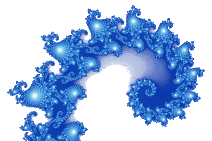28/11/2005, 16:30 — 17:30 — Amphitheatre Pa2, Mathematics Building
Jonathan Borwein, Dalhouisi University, Canada
What is High Performance Mathematics?
Seventy-five years ago Kurt Gödel overturned the mathematical apple cart entirely deductively; but he held quite different ideas about legitimate forms of mathematical reasoning:
If mathematics describes an objective world just like physics, there is no reason why inductive methods should not be applied in mathematics just the same as in physics.
Kurt Gödel, 1951
This lecture will be a general introduction to Experimental Mathematics, its theory and its “Experimental methodology” that David Bailey and I — among many others — have come to practice over the past two decades. I will focus on the differences between Discovering Truths and Proving Theorems. We shall explore various of the computational tools available for deciding what to believe in mathematics, and — using accessible examples — illustrate the rich experimental tool-box mathematicians now have access to. In an attempt to explain how mathematicians use High Performance Computing (HPC) and what they have to offer other computational scientists, I will touch upon various Computational Mathematics Challenge Problems including
This problem set was stimulated by Nick Trefethen”s recent more numerical SIAM 100 Digit, 100 Dollar Challenge (*), which I shall also mention.
Bibliography
- D.H. Bailey and J. M. Borwein, Experimental Mathematics: Examples, Methods and Implications, Notices Amer. Math. Soc., 52 No. 5 (2005), 502–514. [CoLab Preprint 269].
- Jonathan M. Borwein and David H. Bailey, Mathematics by Experiment: Plausible Reasoning in the 21st Century, A.K. Peters, Natick, MA, 2004.
- Jonathan M. Borwein, David H. Bailey and Roland Girgensohn, Experimentation in Mathematics: Computational Paths to Discovery, A.K. Peters, Natick, MA, 2004.
All resources are available at http://www.experimentalmath.info.

